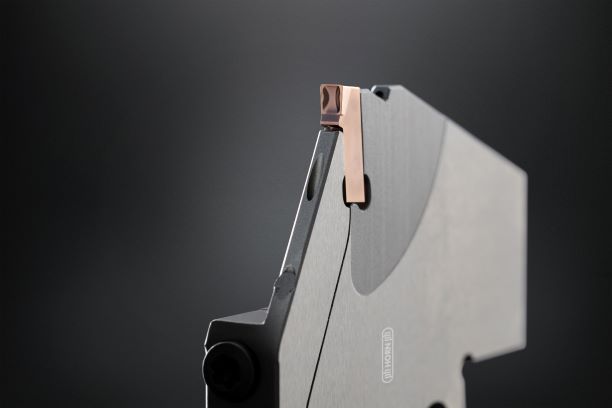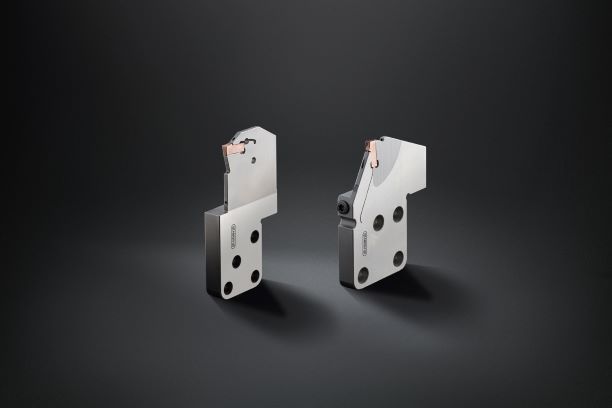New parting off geometry for high feed rates
For parting off at high feed rates, Horn is introducing the EH geometry, a new development based on the S100 grooving system. The stable cutting edge enables feed rates in the range f = 0.25-0.4 mm/rev during grooving and parting off and thus a reduction in machining time for those operations. Reliable chip evacuation and control is ensured by the special chip formation. However, the high feed rates require a stable machine for grooving and parting off as well as secure clamping of the workpiece. From a feed rate of 0.3 mm/rev, Horn recommends reducing the infeed for the first 3 - 4 mm during grooving and parting off. Holders and cassettes for grooving along the Y-axis are the first choice for grooving at high feed rates due to their stability. Horn offers the single-edged grooving inserts in widths of 3 mm and 4 mm.
In 2019, Horn expanded the S100 grooving system with new holder variants for grooving on turn-mill centres with the feed along the Y-axis. The process enables high-performance parting-off with high cutting values and thus a shorter machining time. Furthermore, there is the possibility of parting off large diameters using a compact holder as well as parting off with narrower widths. With the new geometry, Horn is now rounding off this system.
Especially when parting off workpieces of larger diameter, large moments of force are generated. The space available in the machine often does not allow the use of tools of larger cross-section. With the new arrangement of the insert in the tool holder, the cutting forces are absorbed by the main cross-section of the parting off tool. This results in higher rigidity of the overall system for a given cross section of the parting tool holder, allowing higher feed rates for the width of insert. Transmission of the force along the longitudinal direction of the tool allows narrower holders to be used to achieve the same system rigidity. In modern turn-mill centres, parting off with the new grooving tools introduces a component of the cutting force along the spindle centreline, leading to higher rigidity of the entire system.

